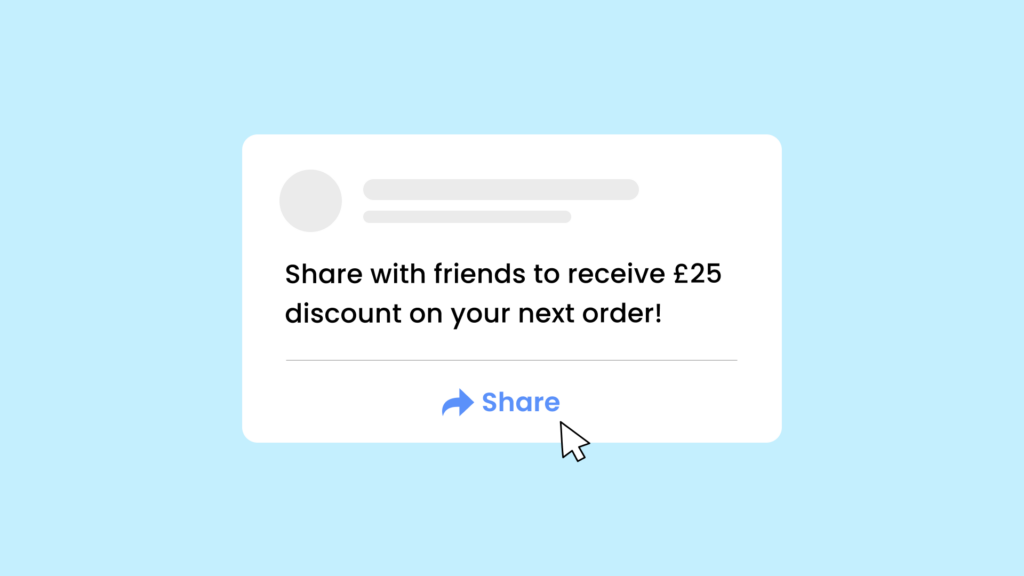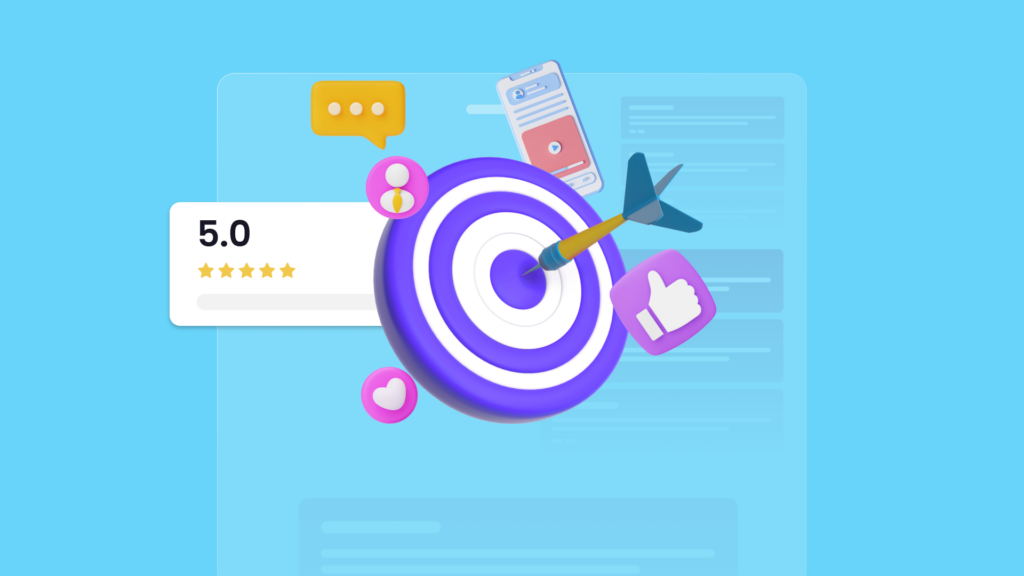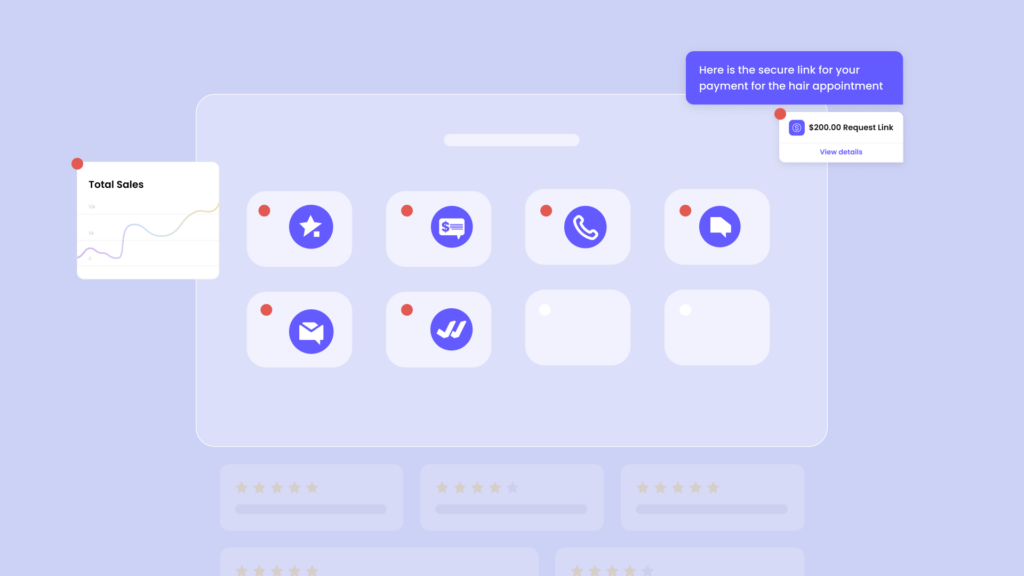In the ever-evolving landscape of marketing, one timeless truth prevails: the power of word-of-mouth recommendations. While cutting-edge digital strategies and flashy ad campaigns have their place, there’s something inherently trustworthy about a friend, family member, or colleague passionately endorsing a product or service. This phenomenon lies at the heart of referral marketing strategies that bring in new customers and cultivate a dedicated community of loyal advocates.
What is Referral Marketing?
Referral marketing stands as a distinct advertising method, where businesses proactively encourage their customers to advocate for their services, products, or experiences to others. It distinguishes itself from the spontaneous nature of word-of-mouth marketing by being a deliberate referral marketing strategy encompassing incentives and rewards for customers in exchange for successful referrals.
For instance, a company might extend a discount or exclusive promotion to customers who effectively introduce their products to others. Alternatively, they could collaborate with influencers or institute an affiliate program to motivate individuals to champion their products actively. This not only spreads more information about the product but also actively engages customers in the marketing process by encouraging them to identify potential leads and provide referrals.
The beauty of referral marketing programs lies in their dual benefits – they serve the interests of companies and simultaneously provide tangible rewards and extra value to their customers. This dual benefit structure makes referral programs an exceptional vehicle for fostering customer loyalty while also expanding the customer base.
Types of Referral Marketing
Referral marketing can be generally categorised into four different types. These include:
- Word-of-Mouth Referrals: This is when customers personally recommend a product, service, or business to their friends, family, or acquaintances through spoken communication.
- Online Reviews and Testimonials: Customers share their experiences and opinions about a product or service on online review platforms, social media, or a company’s website. Positive reviews and testimonials can influence others to try the product or service.
- Social Media Sharing: Customers use social media platforms to share their positive experiences with a brand, product, or service, reaching a wider audience and potentially influencing their followers and friends.
- Email Referrals: Companies encourage their customers to refer their contacts through email campaigns. Incentives are often provided for successful referrals.
These referral marketing strategies harness the power of customer satisfaction and personal networks to grow a business’s customer base. Other types of referral marketing may include influencer marketing, affiliate marketing, loyalty programs and advocate marketing. These various types of referral marketing strategies aim to leverage satisfied customers and their networks to expand a business’s customer base and drive sales.
Building a Referral Marketing Strategy
To build a successful referral marketing strategy is to achieve the two goals we’ve mentioned above (customer loyalty and expanding your client base) and promote brand advocacy among your existing clients. Create the right strategy by following these steps:
1. Create an Exceptional Product or Service
First and foremost, you need to have a great product. Your existing customers are your best ambassadors, but they won’t refer others if they’re not genuinely satisfied with the quality of your product. Focus on delivering exceptional value and a delightful experience to ensure your customers are enthusiastic about spreading the word.
2. Set Clear Objectives and KPIs
Begin by establishing Key Performance Indicators (KPIs) and objectives for your referral program. Determine what you want to achieve through referrals, whether it’s increasing sales, expanding your customer base, or enhancing brand loyalty.
3. Implement a Referral Program
An organised referral program offers a transparent motivator for your customers to recommend others. Provide enticements such as discounts, complimentary items, or monetary bonuses for both the referrer and the referred customer. The crucial element is to ensure that the referral process remains straightforward, user-friendly, and gratifying.
4. Build Strong Relationships
Customer relationships are at the heart of referral marketing. With Magic, you can engage with your customers genuinely and consistently through SMS, email, Webchat, Facebook, and other socials. When customers feel valued and appreciated, they’re more inclined to recommend your brand to others.
5. Encourage Referrals at the Right Time
Timing holds great significance in referral marketing. Request referrals when your customers are at the peak of their satisfaction or have recently accomplished a significant milestone with your product or service. Use Magic to ask for a review by reception, send out auto review invites and review reminders to turn happy customers into business advocates.
6. Run Targeted Campaigns
Divide your customer base into distinct groups and customise your referral campaigns for each segment. Personalised messages have a higher chance of connecting with particular customer groups. With the use of prebuilt templates, dynamic tags and easy segmentation, you can send out a personalised text campaign in a matter of minutes.
7. Monitor and Optimise
Your referral marketing strategy will evolve over time as you gain more insight into the preferences of your customer base. To get the most out of it, make sure you continuously monitor the performance of your referral program and gather feedback from your clients. This will give you an idea of what’s working and what needs improvement. Adjust your approach accordingly to ensure the best results.
8. Select the Right Tools
Last but most certainly not least is the right software. Ideally, you want a tool that allows you to automate your referral marketing strategy as much as possible, monitor referrals and streamline communication in a single platform. Not sure where to look? Magic is the all-in-one platform created specifically to help your businesses grow. Magic Reviews allows you to get more positive feedback, while Magic Webchat empowers your business to convert customers across SMS, email, Webchat, Facebook, and other socials, all from a single unified inbox.
Frequently Asked Questions about Referral Marketing Strategy
What are the 3 types of referral?
- Experience-Based Referrals: These come from satisfied customers who have directly experienced your services and are eager to share their positive experiences.
- Reputation-Based Referrals: Professionals familiar with your industry reputation may refer to your services, even without direct experience with your company.
- Specialisation-Based Referrals: These arise from your niche expertise, making your brand visible to a relevant audience, but requiring you to showcase your unique value to referral leads.
Harnessing all three referral types in your marketing strategy can significantly enhance your business growth.
What are the four types of referral marketing?
There are four distinct referral categories: word-of-mouth, online reviews, social media sharing, and email. If you’re encountering challenges in generating referral business via email and social media marketing, exploring the remaining two avenues is a prudent strategy worth considering. Magic is here to provide you with all the necessary tools to successfully manage your referral marketing strategy.
How do you develop a referral strategy?
Creating a customer referral program can be broken down into five essential steps:
- Establish Key Performance Indicators (KPIs) and objectives for your referral program.
- Define the incentives and rewards structure for your referral program.
- Craft the design of your customer referral program and its dedicated landing page.
- Select appropriate tools to facilitate the management of your referral program.
- Actively promote and publicise your customer referral program to maximise its effectiveness.
What is a referral technique?
Referral marketing is a marketing strategy leveraging recommendations and word-of-mouth within a business’s existing customer networks to expand its customer base.
How successful is referral marketing?
Referral marketing boasts impressive statistics: it yields 3-5 times higher conversion rates compared to other channels. Customers who come via referrals contribute to a 25% higher profit margin. Moreover, they tend to exhibit 18% greater loyalty than customers acquired through alternate methods and are four times more inclined to refer additional customers to your brand.
Key Takeaway
Referral marketing can be a game-changer for your business when executed effectively. It’s not just about gaining more customers; it’s about building a community of loyal advocates who believe in your brand. By creating an exceptional product, implementing a structured referral program, and nurturing strong relationships with your customers, you can harness the power of referrals to drive sustained business growth. Remember, the best marketing often comes from those who love what you do and want to share it with others.
About Magic
Magic helps local businesses grow. Thousands of local businesses use Magic to get more online reviews, win new customers, easily manage customer conversations and grow sales. Magic offers these features:
- Reviews: Get more reviews with automatic review requests for popular review sites like Google, Facebook, Yelp, TrustPilot, and more. Rank high on local search and enhance your visibility on Google.
- Inbox: Keep track of customer conversations across channels in one inbox, including SMS, Facebook, Instagram, and Gmail. Manage conversations better as a team and do more with industry specific templates.
- Text Marketing: Drive more sales with instant text campaigns and reach your customers at the right moment with automation. Use prebuilt templates to send out text campaigns in minutes.
- Webchat: Turn website visitors into customers with SMS powered Webchat. Chat to website visitors directly through SMS so you won’t miss a lead, even when they leave your website.
Looking to grow your local business? Book in a demo call now. Follow us on Instagram and Facebook



